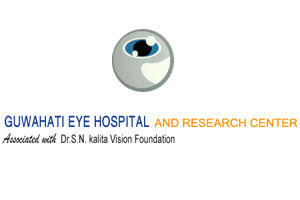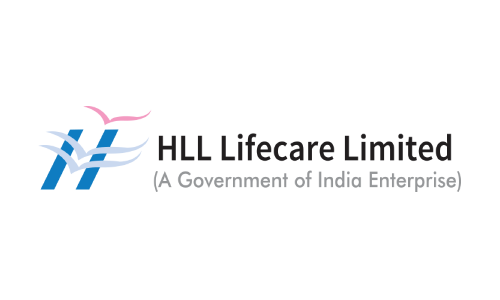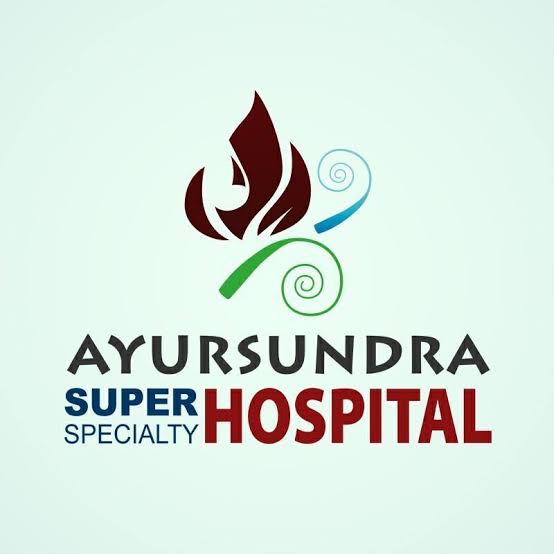







Read More
B.Sc. Agriculture is a 4-year undergraduate course that focuses on research and practices in the field of Agriculture Sciences. The course covers important branches of science such as Genetics and Plant Breeding, Agriculture Biotechnology, Agriculture Microbiology, Plant Pathology, Soil Sciences, and Water Resource Management. The course aims to incorporate advanced tools and technology in the field of Agriculture Science.
Year wise Course Details
Courses for this semester
The course provides theoretical and practical knowledge on the fundamental aspect of agriculture, new technology to overcome the problems faced by farmers in crop production and also it provide full explore to new varieties and techniques of crop productions that are releasing now a days.
The course provides theoretical and practical knowledge on the concept of soil water relation, water requirement of crop, various methods for crop production and water management of crops in various situation.
This undergraduate course provides students with a fundamental understanding of forestry, which encompasses the science, art and business of cultivating forestry and agroforestry plants. A range of topics related to forestry terminology, classification, policies and other forestry practices are covered.
This undergraduate course provides students with a foundational understanding of horticulture, which encompasses the science, art and business of cultivating horticultural plants. This course covers a range of topics related to plant growth, plant propagation, cultivation and management.
The course provides a comprehensive knowledge of soil, its genesis, factors and processes responsible for soil formation and knowledge of different soils distributed over India while identifying their prospects for agriculture. Concept of the physical, chemical and biological properties of soil and how these properties influence plant growth and yield. The students will have an understanding of the causes of soil pollution, its effects on agricultural production and identifying methods to tackle soil pollution.
The course provides a thorough understanding of biochemistry principles and practical applications. It covers water properties, pH, and buffers, essential for cellular stability, and examines biomolecules like carbohydrates, lipids, proteins, and nucleic acids. Practical sessions enable qualitative and quantitative analyses of biomolecules and enzymatic reactions. Additionally, it introduces advanced plant biotechnology techniques for crop improvement and genetic manipulation. Overall, it equips students with essential knowledge and skills for understanding life processes and their manipulation in scientific and industrial contexts.
This undergraduate course that provides students with a foundational knowledge to the students on various aspects like sociology and Rural sociology: its significance in agriculture extension, Rural society, Social Groups, Social Stratification, Culture concept, Social Institution, Social Change & Development. Educational psychology: Meaning & its importance in agriculture extension. Behaviour: Cognitive, affective, psychomotor domain, Personality, Learning, Motivation, Theories of Motivation, Intelligence.
This course combines literary exploration with language skill enhancement, analyzing short stories by notable authors and mastering grammar intricacies. Through diverse reading and writing exercises, students refine communication abilities, while immersive listening and speaking tasks foster fluency in everyday interactions. By intertwining literary analysis with practical language application, this course prepares students for nuanced communication and insightful literary interpretation.
The course explore the historical, cultural, and environmental aspects of agriculture. It covers topics such that development of farming practices, traditional agricultural techniques, the role of agriculture in shaping societies, and the conservation of agricultural biodiversity.
The course provides a foundational understanding of plant biology, covering topics such as plant anatomy, taxonomy, habits, and seed germination. Through theoretical and practical sessions, students explore plant structures, classification principles, and adaptation mechanisms across diverse plant families. This course serves as a crucial stepping stone for students pursuing further studies in biology and related disciplines.
The Elementary Mathematics course provides a thorough foundation in essential mathematical concepts. Students learn arithmetic, algebra, geometry, probability, and statistics, developing problem-solving skills and mathematical reasoning. With a focus on real-world applications, the course equips students with the fundamental skills necessary for future academic and practical pursuits.
The course examines the fundamental principles of Human Values and Ethics. It explores the foundations of ethical decision-making and the significance of human values in personal and professional lives. This course delves into moral philosophy, cultural perspectives, and real- world dilemmas, empowering learners to make ethical choices that promote a just and compassionate society. Through critical analysis and reflection, learners will develop a strong moral compass, fostering responsible decision-making and social consciousness in various life contexts
The course provides a comprehensive exploration of various physical activities, including Football, Basketball, Kabaddi, Ball Badminton, and Table Tennis, alongside the practice of Yoga. Through a blend of theory and practice, students develop skills, strategies, and holistic health awareness. Emphasizing demonstration, practice, and correction, the course aims to instill lifelong habits of physical activity and wellness.
The course provides a comprehensive overview, covering its history, objectives, and principles, alongside regular programmes, organizational structure, and volunteer conduct. It emphasizes health awareness and engages with various activities such as special camps, community surveys, and financial analysis. Understanding youth, community mobilization, social harmony, and national integration are key themes, exploring youth profiles, challenges, and opportunities for social change. It also delves into volunteerism, citizenship, human rights, and family dynamics within society, highlighting their roles in fostering civic engagement and social cohesion.
This course is intended for learners with some experience using Microsoft Windows, who are seeking to build presentation skills with Microsoft Word. To be successful in this course student should understand the basics of using a Windows-based computer. Experience with printing and using a web browser are an asset, but not required. Knowing how to use Microsoft Office products is essential in any professional setting and simply develop a new personal skill this course is for you.
Courses for this semester
This undergraduate course provides foundational understanding of genetics and covers various topics related to classical and molecular genetics.
The course provides a comprehensive knowledge of manures and fertilizers, understanding of the history of soil fertility and plant nutrition and their importance. The course also imparts knowledge on determination of moisture, organic matter, N, P, K content from organic manure as well as available from soil including macro and micro nutrients & the principles behind various analytical instruments used in the Soil Science lab.
The course has been designed to impart knowledge to the students on various morphological, anatomical and physiological aspects of crop plants with special reference to growth, development and productivity of crop plants. This course is to make the students aware about the concepts of plant growth analysis and enable the students to acquire the fundamental knowledge to conduct plant physiology research in future.
This course introduces students to the basic principles and concepts of microbiology, the study of microorganisms such as bacteria, viruses, fungi, and protozoa. Students will explore the structural organization of genetic materials, function, classification, and significance of microbes in various environments, including their roles in soil fertility and crop production.
The course provides a foundation for understanding supply and demand in agricultural markets, agricultural policy, farm management, factors affecting agricultural production, and the role of agriculture in the broader economy. The course provides great insights about the economic principles that govern agricultural decision-making, including cost analysis, market structures, and government interventions. The course also explores issues such as agricultural trade, sustainability, and the impacts of technology on farming practices.
This course helps in understanding how plant diseases impact agriculture globally and in India. Students learn to identify disease-causing agents, differentiate symptoms, understand disease development, and grasp epidemiology and management principles, equipping them with essential skills to ensure sustainable agricultural practices and food security
This B.Sc. (Hons.) Agriculture course explores the principles and practices of cultivating and managing fruits and plantation crops. Topics such as varietal selection, propagation techniques, cultivation practices, pest and disease management, and post-harvest handling, equipping them with comprehensive knowledge to optimize yield and quality of fruit and plantation crop production
This undergraduate course provides students with a foundational knowledge on fundamentals aspects Agricultural Extension Education and its significance; planning and development of extension programmes; extension systems in India, history of extension efforts made in India; new trends in agriculture extension; Rural Development and Community Development; Transfer of technology, capacity building of extension personnel; extension teaching methods; Communication and Agriculture journalism; Diffusion and adoption of innovation
The course provides theoretical and practical knowledge on different agronomic crops grown in rabi season, their management practices along with harvesting and threshing of these crops.
The course offers a thorough overview that includes regular programs, organizational structure, volunteer behaviour, and its history, aims, and guiding principles. It has a strong emphasis on health awareness and takes part in a range of initiatives, including financial analysis, community surveys, and special camps. Key issues that are explored include understanding youth, community mobilization, social harmony, and national integration. Youth profiles, difficulties, and chances for social change are also explored. In addition, it explores the importance that human rights, volunteerism, citizenship, and family dynamics play in promoting social cohesiveness and civic involvement.
Courses for this semester
The course provides theoretical and practical knowledge on different agronomic crops grows in the kharif season, its management practices along with harvesting and threshing of crops.
This undergraduate course will provide an understanding of plant breeding, its importance and its objectives. This course covers a range of topics related to methods of breeding in different types of crops, modes of reproduction, and Intellectual Property Rights.
This undergraduate course is a multidisciplinary field that combines principles of finance, economics, and management with a focus on agricultural businesses and cooperatives. This course will equip students with the knowledge and skills to effectively manage financial resources, mitigate risks, and foster collaboration in the agricultural sector. This course covers a range of topics related to agricultural finance, credit analysis, higher financing institutions, agricultural cooperation etc.
The course provides a comprehensive study of entomology, covering theoretical principles and practical applications. Topics include insect classification, morphology, ecology, and Integrated Pest Management (IPM). Students explore the impact of environmental factors on insect populations and learn techniques for sustainable pest control. Practical sessions reinforce learning through hands-on experience in insect collection, preservation, and sampling. Overall, the course equips students with essential skills and knowledge for effective pest management and environmental conservation.
This course provides a comprehensive overview of computer applications in agriculture, covering theory and hands-on practice. Students learn essential computer concepts, database management, and programming tailored for agricultural use. Practical sessions include utilizing ICT tools, computer models, and advanced technologies like geospatial systems and smartphone apps for farm management. By the course end, students are equipped to optimize agricultural processes and make informed decisions using IT solutions.
The course offers a comprehensive overview of farm power and machinery, bridging theory with hands-on practice. Students explore IC engine principles, transmission systems, and hydraulic controls, alongside tractor types and implement operation. Through practical sessions, they gain proficiency in maintenance and operation, preparing them to assess and utilize farm machinery effectively in agricultural operations
This course offers a focused study on the cultivation and management of vegetable and spice crops. Students will gain practical knowledge on production techniques of these crops. Topics including crop selection, seed technology, cultivation practices, irrigation techniques, disease and pest management, and harvesting methods, and acquainting students with the expertise needed to enhance productivity and quality in vegetable and spice production.
This course provides a thorough examination of environmental studies, covering theory and practical applications. Students explore the interdisciplinary nature of environmental issues, from resource utilization to biodiversity conservation and pollution control. Through practical components like fieldwork and case studies, they gain hands-on experience in assessing environmental assets and disaster management strategies. Ultimately, the course equips students to tackle contemporary ecological challenges with practical solutions.
This undergraduate course aims with the development of communication skills and technical writing skills of students that provides students with a foundational knowledge or skills related to communication, scientific writing skills, presentation skills, public speaking skills, listening and note taking skills organizing seminars and conferences, reading and comprehension skills.
This course offers a thorough understanding on the design aspects of greenhouse. Students learn about the crop cultivation in a greenhouse and they will have a practical experience of protected cultivated under modified atmospheric condition.
Courses for this semester
This course offers a thorough introduction to using statistics in agriculture. Students will analyze agricultural data using graphs, central tendency, and dispersion measures. They'll apply probability theory to solve agricultural problems and explore correlations and regressions to understand variable relationships. Through practical applications, they'll learn to design efficient agricultural studies using sampling methods and variance analysis, equipping them to tackle real-world challenges in agricultural data analysis and decision-making.
This course explores ornamental crops, medicinal and aromatic plants, and landscaping principles, emphasizing their importance and uses. It covers production technology for key flowers and medicinal plants, including roses, gladiolus, Ashwagandha, and mint. Practical sessions involve plant identification, garden planning, training, pruning, and post-harvest handling. Students will also visit commercial units to gain practical experience.
The course provides a thorough exploration of energy sources vital for agriculture, focusing on both traditional and renewable options. Students engage in practical sessions with renewable energy gadgets and study production processes like biodiesel. Emphasis is placed on sustainable energy use in farming, equipping students to navigate and contribute to renewable energy's role in agriculture.
The course provides a clear understanding of soil quality and soil health, knowledge of different problem soils and waste lands distributed over India and the use of advanced remote sensing and GIS techniques to identify and measures to reclaim them. the course also provides the knowledge of different quality and standards of irrigation water and its uses in agriculture. An idea of land capability and suitability classes and sub-classes
The agricultural meteorology course offers a comprehensive understanding of meteorological principles crucial for agricultural optimization. Students explore topics such as atmospheric composition, solar radiation, and weather phenomena, while gaining hands-on experience with meteorological instruments and data analysis. Emphasis is placed on weather forecasting techniques to mitigate risks from extreme events and climate change impacts on agriculture. By course end, students are equipped to assess, adapt, and optimize agricultural practices in response to dynamic weather conditions and changing climate patterns.
This undergraduate course will provide an understanding of seeds, its types and production in various crops. It also covers a wide range of topics including Seed Act, its enforcement, seed certification, seed processing and marketing.
The course provides theoretical knowledge on various farming system, Cropping system and management practices done in different cropping system
This undergraduate course provides students with a comprehensive understanding of the complex and dynamic nature of agricultural markets, equipping them with the knowledge and skills necessary to succeed in various roles within the agricultural sector, including farming, agribusiness management, market analysis, and policy-making. This course delves into the principles, practices, and dynamics of marketing agricultural products, including the factors influencing trade and pricing in agricultural markets
The course provides a comprehensive overview of livestock management, focusing on economic importance, reproductive principles, housing needs, and breed improvement. Students gain practical skills in feed formulation, disease prevention, and animal handling for a variety of farm animals and poultry. Through a blend of theory and hands-on experience, learners develop proficiency in managing various livestock effectively. Graduates emerge equipped to contribute to the industry sustainably, prioritizing animal welfare and industry standards.
Several chemicals are being used in modern agriculture to help crops attain its optimum growth and production. This course is designed to introduce undergrad students to different agro-chemicals including, pesticides and fertilizers, their availability, nature and impact on agriculture.
This course provides information on biopesticides and biofertilizers and apply the knowledge for hands on production, quality control, storage and application of biopesticides and biofertilizers.
The course has been designed to impart knowledge to the students on various micropropagation techniques. This course will enable the students to acquire the fundamental knowledge of different steps involved in micropropagation.
Courses for this semester
This course covers Integrated Pest Management (IPM) principles, including pest categorization, economic analysis, and control methods such as host plant resistance and ecological management including practical skills like pest detection and biocontrol agent identification, surveying, forecasting, and implementing IPM strategies.
The Soil and Water Conservation course offers a comprehensive study of erosion processes and control measures. It covers theoretical aspects such as causes of soil erosion and practical skills like designing erosion control structures. Students learn to analyze contour maps for effective intervention planning and evaluate soil conservation practices in real-world contexts, preparing them to address environmental challenges with informed solutions.
This course provides a thorough understanding of managing arthropod pests in agriculture. Through theoretical and practical components, students learn to identify, analyze, and control pests across crops and storage facilities. From studying pest biology to implementing effective management strategies, learners acquire the skills necessary to tackle pest challenges comprehensively.
This course provides students with comprehensive knowledge of common diseases affecting various crops including cereals, pulses, fruits, vegetables, and plantation crops. Through detailed study and practical activities, students learn to identify, diagnose, and mitigate diseases, contributing to sustainable crop production practices
This undergraduate course will introduce the botanical description, origin, distribution and various breeding approaches in various field and horticultural crops. The course also includes study of conservation and utilization of plant genetic resources.
This undergraduate course aims with development of entrepreneurial ability among students in the field of agriculture by providing students with a foundational knowledge of Entrepreneurship Development, Assessment of entrepreneurial traits, problem solving skills, managerial skills and achievement motivation, exercise in creativity, time audit through planning, monitoring and supervision, identification and selection of business idea, preparation of business plan and proposal writing, visit to entrepreneurship development institute and entrepreneurs
This course provides a thorough exploration of precision agriculture, focusing on integrating geospatial technologies and nanotechnology to enhance agricultural practices. Students learn the principles and applications of GIS, remote sensing, and GPS for soil mapping and crop monitoring, alongside the use of nanotechnology for sustainable productivity. Practical sessions cover GIS software, image processing, and remote sensing interpretation, enabling students to generate management zones and fertilizer recommendations. Through hands-on projects, students gain practical experience in designing precision farming solutions that optimize crop management and resource allocation.
This course emphasizes on practical seed production, mechanization, resource conservation and integrated nutrient, pest and disease management technologies of kharif crops.
This course provides an introduction to the types and importance of Intellectual property rights. It also covers various topics including treaties and organizations involved in protecting Intellectual property rights.
This course covers landscaping principles and styles, including terrace and vertical gardening. Students will learn to design and maintain garden components, manage various plants, and plan bio-aesthetic landscapes for urban and rural areas. Practical skills in plant care, landscaping tools, and CAD design are emphasized, with hands-on activities and visits to notable gardens and parks enhancing learning.
This course provides practical and theoretical knowledge on principle and concept of weeds and its management strategies through various means.
This undergraduate course will provide an introduction to hybrid seed production in various self and cross pollinated crops. This course also covers a range of topics including variety release and notification, genetic purity tests for various commercial hybrids.
This undergraduate course is a comprehensive course designed to equip students with the knowledge and skills necessary to effectively manage farm operations, optimize production processes, and make informed decisions regarding resource allocation in agricultural settings. This course will help in developing a comprehensive understanding of farm management principles, production economics, and resource allocation strategies, enabling them to make informed decisions and optimize farm operations.
Courses for this semester
This course provides both theoretical and practical understanding of rainfed agriculture and watershed management along with mitigation strategies, crop planning and crop management techniques in rainfed agriculture.
This course delves into greenhouse technology and post-harvest engineering, teaching students to design, operate, and assess greenhouse systems effectively. From greenhouse design principles to economic analysis, students gain practical skills through hands-on experience with equipment and field visits. By course end, students are proficient in optimizing greenhouse operations and post-harvest processes for agricultural products.
Provides a comprehensive understanding of the symptoms, etiology, disease cycle, and management of various diseases affecting field and horticultural crops, including cereals, pulses, fruits, vegetables, spices, and flowers
This course offers a thorough examination of post-harvest processing for fruits and vegetables, focusing on minimizing losses and enhancing quality. Students learn about pre-harvest factors, preservation methods like canning and drying, storage considerations, and packaging effects on product quality. Practical sessions provide hands-on experience in producing value-added products to industry standards. Overall, students gain essential skills to optimize post-harvest processes and add value to produce.
The course offers a comprehensive exploration of beneficial insects, primarily honey bees, covering their biology, beekeeping methods, and pest management. Practical sessions focus on silkworm rearing, mulberry cultivation, and lac insect identification. Students also learn about biological pest control using natural enemies and engage in experiential learning through research institution visits. Ultimately, the course equips students with the skills for sustainable practices in beekeeping, sericulture, and pest management.
This undergraduate course will introduce the botanical description, origin, distribution and various breeding approaches in various field and horticultural crops cultivated during the Rabi season. The course also includes study of plant genetic resources and breeding for stress resistance and quality.
This course emphasizes on practical seed production, mechanization, resource conservation and integrated nutrient, pest and disease management technologies of rabi crops.
This course provides practical and theoretical understanding of organic crop management techniques for sustainable development of the environment.
This undergraduate course is a comprehensive course designed to equip students with the knowledge and skills necessary to effectively manage farm operations, optimize production processes, and make informed decisions regarding resource allocation in agricultural settings. This course will help in developing a comprehensive understanding of farm management principles, production economics, and resource allocation strategies, enabling them to make informed decisions and optimize farm operations.
This course offers a comprehensive exploration of food science and nutrition, covering fundamental concepts like density and pH, food composition, microbiology, and preservation methods. It delves into nutritional issues, including malnutrition and energy metabolism, while also addressing the design of balanced diets. Through theoretical study and hands-on practice, students gain essential skills for navigating the dynamic field of food science and nutrition.
Course Overview This course provides a comprehensive overview of use of crop models and statistical approaches for prediction of crop yield, forecast of pests and diseases and prepare agro-advisories.
This course explores modern horticultural practices, covering nursery management, micropropagation, and mechanization. Students will learn advanced field preparation, planting methods, and the benefits of controlled environment cultivation. Key topics include micro-irrigation, EC/pH-based fertilizer scheduling, canopy management, and precision farming technologies like GIS and DGPS. Practical sessions provide hands-on experience with polyhouses, shade net houses, and visits to high-tech orchards, integrating theoretical knowledge with real-world applications.
This undergraduate course that provides students with a foundational knowledge to the students on fundamentals aspects Agricultural Journalism: The nature, scope, kinds and functions, characteristics of newspapers and magazines, characteristics of newspaper and magazine readers. Form and content of newspapers and magazines: The agricultural story, gathering agricultural Information Writing a story. Illustrating agricultural stories Editorial mechanics, Practice in interviewing. Covering agricultural events. Abstracting stories from research and scientific materials and from wire services. Writing different types of agricultural stories. Selecting pictures and artwork for the agricultural story. Practice in editing, copy reading, headline and title writing, proofreading, layouting. Testing copy with a readability formula. Visit to a publishing office.
This course provides a comprehensive overview of food safety, covering factors affecting it and practical management strategies. Students learn about global regulations, emerging concerns, and implement practical skills like water quality analysis and FSMS implementation. Through theoretical insights and hands-on experience, participants gain the knowledge and skills necessary to ensure food safety in various food service settings
Courses for this semester
The Crop Production course under the Rural Agricultural Work Experience Programme (RAWE) provides hands-on training in crop cultivation, sustainable farming, and modern agricultural technologies. Students will learn to manage crop production economically and solve real-world agricultural challenges, preparing them for successful careers in agriculture and fostering innovation and sustainability in rural communities.
This course equips students with comprehensive knowledge and practical skills to manage pests and diseases affecting crops. Students engage in field visits, laboratory sessions, and workshops to apply their learning in real-world settings. The course prepares participants to develop effective plant protection plans and contribute innovative solutions to sustainable agriculture
The Rural Economics course under the Rural Agricultural Work Experience (RAWE) program for B.Sc. Agriculture students focuses on understanding the economic structure and challenges of rural areas. Students will explore rural infrastructure, demographic dynamics, and social issues while emphasizing on addressing economic issues and analyzing case studies of rural communities.
This course “Extension programme” aims to connect the gap between academic learning and practical application. Through hands-on involvement in rural communities and Krishi Vigyan Kendra (KVK)/ Research Stations operations, students will enhance their technical skills, understand and apply sustainable farming practices, and engage in problem-solving of real agricultural issues. The program emphasizes community engagement, fostering effective communication and leadership abilities. This comprehensive experience prepares students for impactful careers in agricultural extension, research, and advisory services
Courses for this semester
This course focuses to apply the knowledge of biopesticide and biofertilizers for hands on production, quality control, storage and application of bioagents and biofertilizers.
This undergraduate course will provide an understanding of seeds, its types, production, storage and marketing in various crops.
This course’s components comprise of theory and practical components of spawn production, cultivation of different mushrooms having economic importance, value addition, entrepreneurial skills and health and safety at workplace.
The course has been designed to acquire the fundamental knowledge of beekeeping techniques. This course will enable the students to develop entrepreneurship mind setup and create startup towards commercial production of honey bee.
This module enables the students to have a practical experience regarding plantation of commercial horticultural crops, following appropriate management practices from land preparation to post harvest management, till it reaches the market. Students will acquire hands on training on post- harvest processing and value addition of the crops produced.

CST- Common scholarship test is a national and international level online MCQ based examination funded for intellectual empowerment by Assam down town University.
CST- Maximum enrolment each year is 120 seats and any 10+2 students can apply. Adtu is northeast India’s first placement driven university to provide 100% scholarship benefits worth 10 cr.
CST aims to inspire brilliant and competent students to pursue further education. Accredited with a prestigious grade by NAAC, UGC and AICTE.
Explore more scholarships that can help you reach out your goal with financial aid.
This scholarship is valid on the basis of the board/university examination
| 95% & above | 100% Scholarship on all semester |
| 90%-94.9% | 50% Scholarship on all semester |
| 80%-89.9% | 25% Scholarship on all semester |
This scholarship is valid on the basis of the board/university exam
| National & International Level | 100% Scholarship on all semester |
| State Level | 50% Scholarship on all semester |
| District Level | 25% Scholarship on all semester |
This scholarship is valid on the basis of the board/university exam
| National & International Level | 100% Scholarship on all semester |
| State Level | 50% Scholarship on all semester |
| District Level & NCC Certificate Holder | 25% Scholarship on all semester |
Discover a multitude of world-class amenities and cutting-edge resources at Assam down town University, enhancing your academic journey to new heights.
The Start-Up & Incubation Centre at Assam down town University provides a supportive environment for young entrepreneurs to develop and grow their business ideas. The center provides mentorship, funding, and networking opportunities to help innovative ideas become successful businesses.
SFURTI scheme to support rural entrepreneurs and innovators, an initiative by the Ministry of MSME
TIDE 2.0 scheme for ICT-based startups which provides a grant of Rs. 4L and Rs. 7L under EiR and Grant categories respectively, an initiative by the Ministry of MeitY.
dtVL Ideation, an incubation program for early-stage entrepreneurs with a market-ready solution/product, offering interest-free loans up to Rs. 2 lakhs.
Sprout UP, an incubation program for students, faculties, and researchers with innovative business ideas, prototypes, or technology solutions.

















.png)
































"I am a BBA student of 3rd semester. I hail from Bhutan. I vow that I am having a great experience i...
"AdtU is amazing. I am a BBA student of 2019-22 batch and I am just grateful for the amount of oppor...
Let us be grateful to the people and place who makes us happy. They are the charming gardeners whom ...
Currently I am pursuing MBA in Assam Down Town University. MBA is the professional course through wh...
AdtU is a university that focuses on giving knowledge, education and simultaneously making the stude...
The Assam downtown University has been a great learning experience. The university has provided me w...
My experience with AdtU has been splendid one indeed. Little needs to said about its scenic infrastr...
As a student I am very glad that I have got an opportunity to study here in Assam downtown universi...
My name is Sakhyajit Roy. I?m from Tripura. I joined the university on Auguest, 2017 as a student of...
I share immense pleasure to share my post graduate program experience in Assam down town University....
AdtU is a platform where I got golden opportunities to feed my zeal for knowledge through the dynami...
I am fortunate to get an opportunity to study here in Assam Downtown University. The best thing abou...
Our university is one of the best place for developing ourselves in the field of research and acedem...
ADTU is a university that is very good interms of infrastructure, academics and placements. Our tea...
It is one of best private colleges in North East India, it also provides a good environment for ed...
ADTU is a good University which provides the students with best quality lectures and ensures comfort...
The environment of Assam downtown university is very pleasant.The department of BMLT is very good a...
The university has all the necessary facilities and amenities for students . The classrooms and the ...
Assam downtown University is well recognised all over india. In the ongoing pandemic situation it ha...








